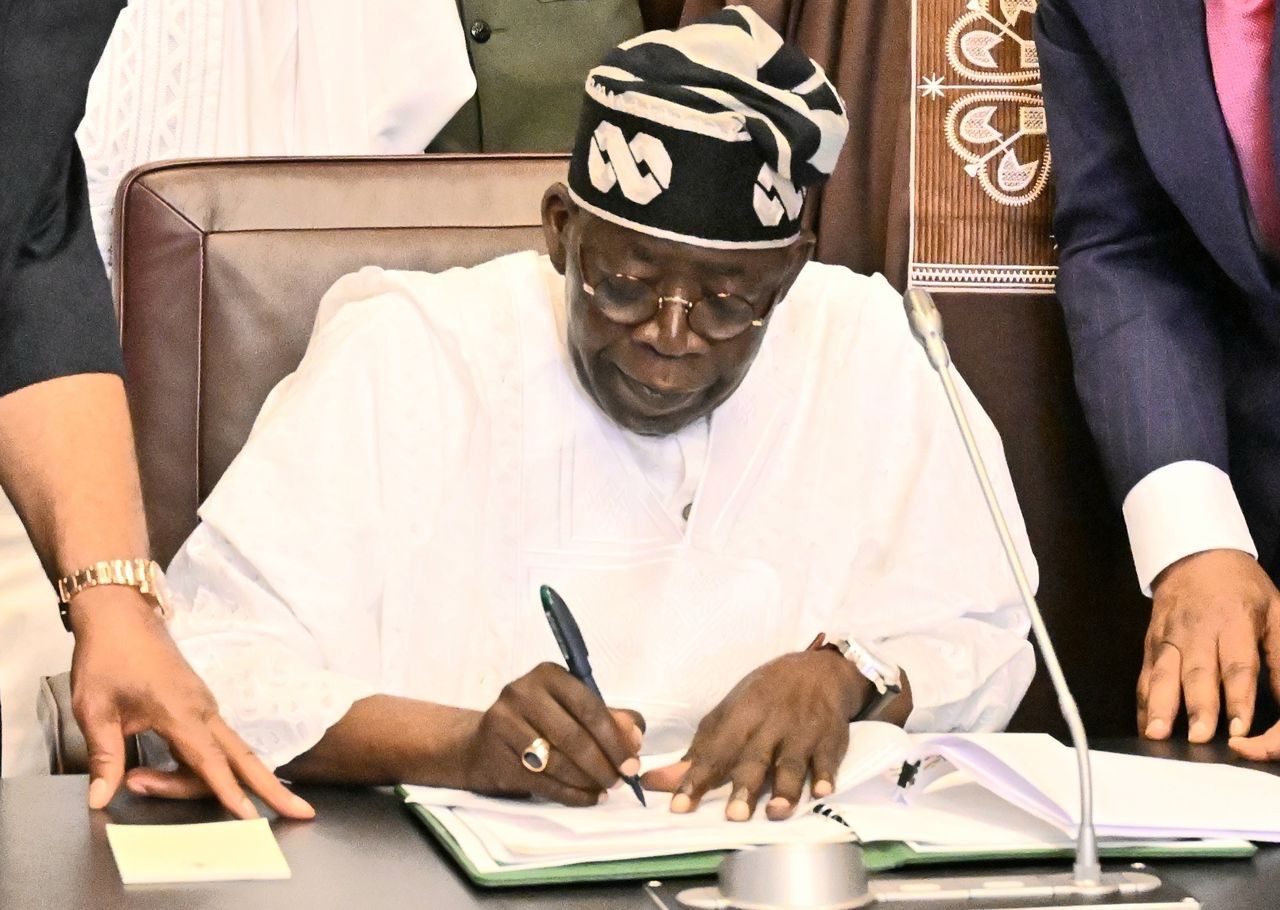Tinubu to sign four tax bills into law
President Bola Tinubu is expected to sign four major tax bills into law on Thursday, in what officials have described as a significant step toward overhauling Nigeria’s complex tax system and improving revenue generation.
The bills are the Nigeria Tax Bill (Ease of Doing Business), the Nigeria Tax Administration Bill, the Nigeria Revenue Service (Establishment) Bill, and the Joint Revenue Board (Establishment) Bill.
According to a statement signed by the Special Adviser to the president on Information and Strategy, Bayo Onanuga, the bills were recently passed by the National Assembly following consultations with business groups, tax professionals, and other experts.
Earlier, Mr Tinubu sent four tax reform bills to the National Assembly and appointed Taiwo Oyedele as Chairperson of the committee, whose recommendations formed the basis of the proposals.
At the time, the bills drew criticism, particularly from the Northern Governors’ Forum, over a proposed value-added tax sharing formula. The governors raised concerns about the derivation model, which would allow states to earn more based on the VAT collected within their borders.
When signed into law, the bills will consolidate various tax laws, create new national tax institutions, and establish formal coordination among federal, state, and local tax authorities.
“When the new tax laws become operational, they are expected to significantly transform tax administration in the country, leading to increased revenue generation, improved business environment, and a boost in domestic and foreign investments,” the statement read.
Mr Onanuga said the signing ceremony will take place at the Presidential Villa, Abuja, and will be attended by key figures, including the Senate President, Speaker of the House of Representatives, leaders of both chambers, and top finance and legal officials.
Others include the Minister of Finance and Coordinating Minister of the Economy, Wale Edun; the Attorney General of the Federation, Lateef Fagbemi; and the Chairmen of the Governors’ Forum and the Progressive Governors’ Forum.
One of the four bills, the Nigeria Tax Bill, is aimed at reducing the multiplicity of taxes and creating a unified legal framework to ease compliance for businesses. It also seeks to improve Nigeria’s investment climate by making the tax process more predictable.
The Nigeria Tax Administration Bill sets out a standard legal and operational framework for tax administration across the three tiers of government. The tax is expected to address overlapping mandates and frequent disputes between federal and state tax agencies.
The Nigeria Revenue Service (Establishment) Bill, which repeals the Federal Inland Revenue Service Act, proposes the creation of a more autonomous and performance-focused body, the Nigeria Revenue Service (NRS). The agency will be responsible not only for tax collection but also for non-tax revenue and will operate under stricter transparency and accountability rules.
The fourth bill, the Joint Revenue Board (Establishment) Bill, introduces a formal structure for cooperation between different levels of government on revenue matters. It includes the establishment of a Tax Appeal Tribunal and an Office of the Tax Ombudsman to handle taxpayer complaints and resolve disputes.
The Tinubu administration has made fiscal reforms a priority since taking office, including subsidy removal and exchange rate liberalisation. The tax bills, if properly implemented, could form a key part of its efforts to stabilise the economy and rebuild public finances.













